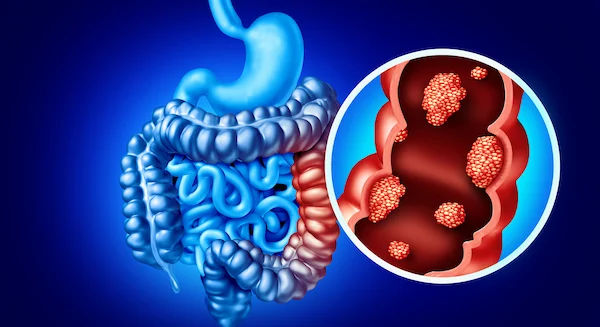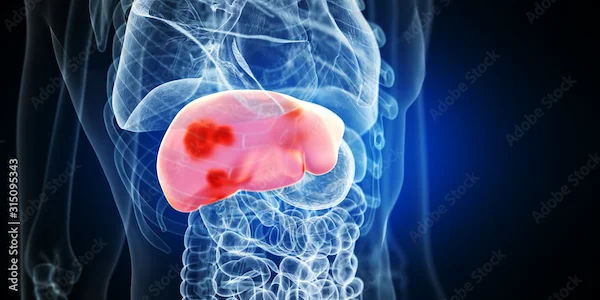Awareness of Ovarian Cancer on Ovarian Cancer Day
Learn about ovarian cancer symptoms, causes, risk factors, diagnosis, and treatment. Discover prevention tips and when to consult a doctor for early detection.


Ovarian Cancer Day is an important occasion to raise awareness about ovarian cancer, a disease that affects thousands of women worldwide. Often called the "silent killer," ovarian cancer can be difficult to detect in its early stages, making awareness and early diagnosis crucial.
This article aims to provide helpful information about ovarian cancer; its symptoms, causes, risk factors, and ways to manage or prevent it. If you or a loved one has concerns about ovarian health, knowing the facts can make a big difference.
What is Ovarian Cancer?
Ovarian cancer begins in the ovaries, which are part of the female reproductive system. The ovaries produce eggs and hormones like estrogen and progesterone. When abnormal cells in the ovaries grow uncontrollably, they can form tumours, which can develop into cancer.
There are different types of ovarian cancer, but the most common is epithelial ovarian cancer, which starts in the outer layer of the ovary. Other types include tumours originating from (tumourising egg-producing cells) /tumours originating from (tumourising hormone-producing cells).
Symptoms of Ovarian Cancer
One of the biggest challenges with ovarian cancer is that its symptoms are often vague and easily mistaken for other common conditions. However, if these symptoms persist for more than a few weeks, it’s important to consult a doctor:
- Bloating or swelling in the abdomen
- Pelvic or abdominal pain
- Feeling full quickly while eating
- Frequent urination or urgency
- Unexplained weight loss or gain
- Fatigue
- Changes in bowel habits (constipation or diarrhoea)
- Irregular periods or postmenopausal bleeding
Since these symptoms can resemble digestive or urinary issues, many women overlook them. If you experience persistent symptoms, don’t ignore them—early detection can improve treatment outcomes.
Causes and Risk Factors
The exact cause of ovarian cancer is unknown, but certain factors can increase the risk:
1. Age – Most cases occur in women over 50, especially after menopause.
2. Family History – Having a close relative (mother, sister, daughter) with ovarian or breast cancer increases risk.
3. Genetic Mutations – Inherited gene changes (like BRCA1 or BRCA2) raise the risk.
4. Reproductive History – Women who have never been pregnant or had children later in life may have a higher risk.
5. Hormone Therapy – Long-term use of estrogen-only hormone replacement therapy (HRT) may increase risk.
6. Endometriosis – A condition where uterine tissue grows outside the uterus.
7. Obesity – Being overweight may contribute to a higher risk.
How is Ovarian Cancer Diagnosed?
If symptoms suggest ovarian cancer, doctors may recommend:
- Pelvic Exam – To check for abnormalities.
- Imaging Tests – Ultrasound, CT scan, or MRI to detect tumours.
- Tumours Test (CA-125) – A protein that may be elevated in ovarian cancer (though not always conclusive).
- Biopsy – Removing a tissue sample for lab testing to confirm cancer.
Early diagnosis is key, so if you have concerns, don’t hesitate to consult a specialist.
Get Your Symptoms Checked now
Treatment Options
Treatment depends on the cancer stage, type, and overall health. Common approaches include:
1. Surgery – Removing the tumour, or both ovaries, fallopian tubes, or the uterus.
2. Chemotherapy – Using drugs to kill cancer cells, often given after surgery.
3. Targeted Therapy – Drugs that attack specific cancer cells with fewer side effects.
4. Hormone Therapy – For certain types of ovarian cancer that respond to hormones.
Prevention and Lifestyle Tips
While not all cases can be prevented, some steps may lower the risk:
- Regular Check-ups – Especially if you have a family history.
- Healthy Diet – Eat more fruits, vegetables, and whole grains; limit processed foods.
- Exercise Regularly – Helps maintain a healthy weight and reduces risk.
- Avoid Smoking – Smoking is linked to several cancers.
- Birth Control Pills – Long-term use may reduce risk (consult your doctor).
- Genetic Counseling - Counsellinghave a strong family history, consider genetic testing.
When to See a Doctor?
If you experience persistent symptoms like bloating, pelvic pain, or unexplained weight changes, schedule a consultation. Early detection can save lives!
Take Action Today
If you’re concerned about ovarian cancer or need a check-up, Apollo 24|7 offers expert consultations and diagnostic tests. You can book an appointment easily online and get the care you need.
Conclusion
Ovarian cancer may be difficult to detect early, but knowing the warning signs and taking proactive steps can greatly improve the chances of successful treatment. By staying informed, seeking regular check-ups, and addressing symptoms promptly, women can protect their health and increase their chances of early diagnosis.
Consult Top Oncologist
Consult Top Oncologist

Dr.sanchayan Mandal
Medical Oncologist
17 Years • MBBS, DrNB( MEDICAL ONCOLOGY), DNB (RADIOTHERAPY),ECMO. PDCR. ASCO
Kolkata
Dr. Sanchayan Mandal Oncology Clinic, Kolkata

Dr Gowshikk Rajkumar
Oncologist
10 Years • MBBS, DMRT, DNB in Radiation oncology
Bengaluru
Apollo Clinic, JP nagar, Bengaluru

Dr. Raja T
Oncologist
20 Years • MBBS; MD; DM
Chennai
Apollo Hospitals Greams Road, Chennai
(225+ Patients)

Dr. Sanchayan Mandal
Medical Oncologist
17 Years • MBBS, DrNB( MEDICAL ONCOLOGY), DNB (RADIOTHERAPY),ECMO. PDCR. ASCO
Kolkata
MCR SUPER SPECIALITY POLY CLINIC & PATHOLOGY, Kolkata

Dr. Prashant Chandra Das
Surgical Oncologist
15 Years • MBBS (MKCG Medical college) MCh (Surgical Oncology, Kidwai memorial institute of Oncology, Bangalore) MS (General Surgery, BHU Varanasi) Fellowship in Minimal Access Surgery ( FMAS). ESSO Course On Minimally Invasive Esophagectomy & Gastrectomy (UMC, Utrecht, Netherlands). Trained in Robotic and Laparoscopic Cancer Surgery.
Bhubaneswar
Apollo Hospitals Old Sainik School Road, Bhubaneswar
(25+ Patients)





.webp)